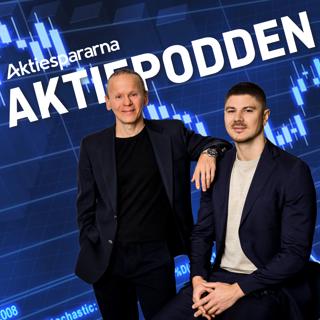
The Cost of Meritocracy With Michael Sandel
Does meritocracy create a better world for everyone, or does it create massive inequality? There's been a lot of debate in the last few years about meritocracy, and it's become even more pressing in light of the pandemic. If essential workers are "essential", are they really less meritorious than a banker or accountant? So, we decided to discuss both sides of this debate in our next two episodes. On this episode, we'll be joined by Michael Sandel who teaches political philosophy at Harvard University and is author of the new book "The Tyranny of Merit: What's Become of the Common Good". He'll be making a nuanced case against meritocracy. Also, be sure to stick around for a new surprise after the episode.
12 Aug 202154min

Introducing: Entitled
The University of Chicago Podcast Network is excited to announce the launch of a new show, it’s called "Entitled" and it’s about human rights. Co-hosted by lawyers and UChicago Law School Professors, Claudia Flores and Tom Ginsburg, Entitled explores the stories around why rights matter and what’s the matter with rights. We’re going to share the first episode of that show with you this week, and recommend you go subscribe! We’ll be back next week with a new the second installment of our meritocracy series! Please enjoy Entitled, and we’ll see you next week!
5 Aug 202137min

The Promise Of Meritocracy With Adrian Wooldridge
Does meritocracy create a better world for everyone, or does it create massive inequality? There's been a lot of debate in the last few years about meritocracy, and it's become even more pressing in light of the pandemic. If essential workers are "essential", are they really less meritorious than a banker or accountant? So, we decided to discuss both sides of this debate in our next two episodes. On this episode, we'll be joined by Adrian Wooldridge, political editor at The Economist and author of the new book "The Aristocracy of Talent: How Meritocracy Made the Modern World". He'll be making the nuanced case in favor of meritocracy, and we'll hear the other side on our next episode.
29 Juli 202144min

The Engine No. 1 David vs Exxon Goliath With Chris James
If shareholders are the owners of a company, they should be able to get that company to do what they want. But what happens when shareholders want something other than profits at any cost? In a major moment for what's come to be called "shareholder capitalism", activist hedge fund Engine No. 1 successfully claimed three seats on Exxon's board of directors this year. Their explicit mission is to force the energy goliath to turn away from carbon and toward more clean forms of energy. On this episode, we speak with the founder of Engine No. 1, Chris James, about how they approached the proxy fight, his views on shareholder capitalism, and the future of activist hedge funds.
15 Juli 202149min

The Price Of A Vaccine With Moderna CFO David Meline
There are plenty of lingering questions about the development of the coronavirus vaccine. How was the pricing decided? Did the public-private partnership with the government work? Who's right in the debate over patent rights and profit sharing? There's no better person to put these questions to than David Meline, the CFO of Moderna. He joins our podcast this week to talk through the political economy of the Covid-19 vaccine.
1 Juli 202141min

How The Elites Are Losing Control With Martin Gurri
Occupy Wall Street, Italy's Five Star Movement, the indignados in Spain—we've seen an increase in anti-elite protests by a disabused public over the last two decades. But what has caused this "revolt of the public"? Martin Gurri, Visiting Fellow at George Mason University's Mercatus Center and former CIA media analyst, argues that elites have overpromised and under delivered all while losing their monopoly on information flows. But have our emperors lost their clothes recently, or did they never have them to begin with?
17 Juni 202147min

Why Do We Have High Prices But Stagnating Wages?
In the last few decades, American wages have stagnated for everyone except those at the very top. Yet, during this same period, worker productivity and corporate profits have soared. Why these two trends have coincided has perplexed economists. But, in a new book, economist Jan Eeckhout proposes a simple answer: market power. We discuss his proposal and possible solutions for this problem on this episode.
3 Juni 202145min

Who Will Regulate The Regulators: Stigler 50 Years Later
Have you ever heard the term "regulatory capture"? It's a famous economic theory that the regulation and regulators we create to keep certain industries in check can be captured and bent to the desires of those very industries. This year marks the 50th anniversary of the publication of the paper that first proposed this theory. It's called "The Theory of Economic Regulation" and it was written by none other than the namesake of the center that produces this podcast, George Stigler. We recently hosted a conference of some of the most prominent economists to reflect on why the ideas of this paper are still revered and relevant today.
20 Maj 202130min






















